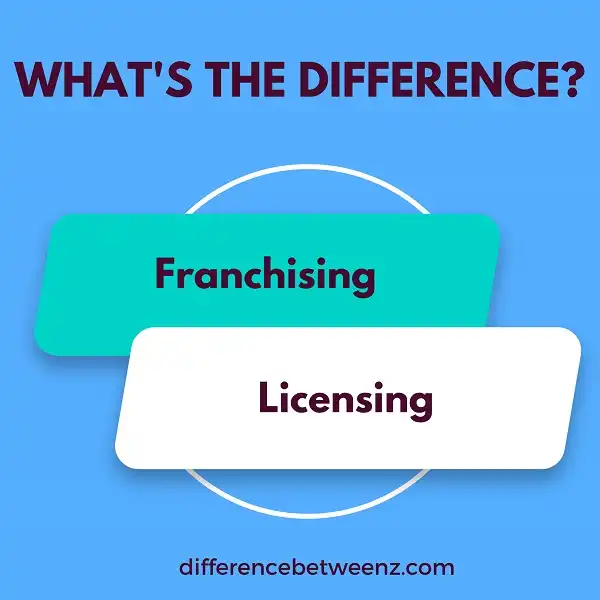As a small business owner, you may have heard of the terms “franchising” and “licensing” but may not know the difference between the two. Franchising and licensing are both ways to grow your business, but they are different in a few key ways. Here’s what you need to know about franchising and licensing so you can decide which is right for you.
What is Franchising?
Franchising is a business model where a Franchisor licenses their business model and brand to a Franchisee. Franchising is popular in many industries, including restaurants, retail, and service businesses. A Franchisor will typically provide support to their Franchisees in the form of marketing, training, and operations assistance. In return, the Franchisee pays the Franchisor royalty and marketing fees.
Franchising can be an attractive option for entrepreneurs because it allows them to start their own business with the benefit of an established brand and proven business model. However, it is important to carefully research a Franchisor before investing in a franchise, as there is always some risk involved. When done correctly, Franchising can be a great way to build a successful business.
What is Licensing?
Licensing is the process of obtaining permission from a licensing authority to use a copyrighted work. This can include using the work for educational, commercial, or personal purposes. In most cases, the copyright holder retains the exclusive rights to their work and must give their permission before it can be used by others. Licensing can help to ensure that the copyright holder is compensated for their work and that it is used in accordance with their wishes. It can also help to ensure that works are not made available to the public without the copyright holder’s consent. Licensing is an important part of copyright law and can help to protect the rights of creators and users alike.
Difference between Franchising and Licensing
- Franchising and licensing are two popular business models that allow companies to expand their reach without incurring the full cost of setting up new locations. Franchising involves granting a franchisee the right to use the company’s brand and business model in a specific territory. The franchisee is typically responsible for all aspects of running the business, including marketing, staffing, and operations.
- Licensing, on the other hand, involves granting another company the right to produce or sell products or services under the licensor’s brand. The licensee typically pays a royalty fee to the licensor in exchange for the right to use the brand.
- Franchising is often seen as a more hands-off approach than licensing, as franchisees are typically required to adhere to strict guidelines set by the franchisor. Licensing, on the other hand, offers more flexibility to licensees but can also be less profitable for licensors if licensees are not successful in promoting and selling the product or service.
Conclusion
Franchising and licensing are two different ways to grow a business. Both have their own advantages and disadvantages, which we’ve outlined in this blog post.


